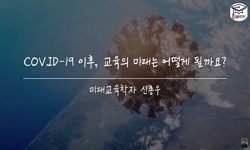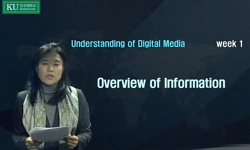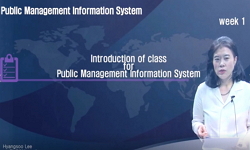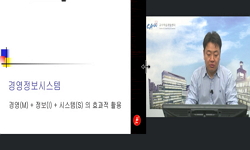Background: With greater use of social media platforms for promotions of research articles, retracted articles tend to receive approximately the same attention. We systematically analyzed retracted articles from retractionwatch.com to look at the Altm...
http://chineseinput.net/에서 pinyin(병음)방식으로 중국어를 변환할 수 있습니다.
변환된 중국어를 복사하여 사용하시면 됩니다.
- 中文 을 입력하시려면 zhongwen을 입력하시고 space를누르시면됩니다.
- 北京 을 입력하시려면 beijing을 입력하시고 space를 누르시면 됩니다.
https://www.riss.kr/link?id=A108017391
-
저자
Khan Hiba (Dubai Health Authority, Dubai, United Arab Emirates.) ; Gupta Prakash (Virgen Milagrosa University Foundation College of Medicine, San Carlos City, Pangasinan, Philippines.) ; Zimba Olena (Department of Internal Medicine No.2, Danylo Halytsky Lviv National Medical University, Lviv, Ukraine.) ; Gupta Latika (Department of Rheumatology, Royal Wolverhampton Hospitals NHS Trust, Wolverhampton, UK.)
- 발행기관
- 학술지명
- 권호사항
-
발행연도
2022
-
작성언어
English
- 주제어
-
등재정보
KCI등재,SCI,SCIE,SCOPUS
-
자료형태
학술저널
-
수록면
1-11(11쪽)
-
KCI 피인용횟수
0
- DOI식별코드
- 제공처
-
0
상세조회 -
0
다운로드
부가정보
다국어 초록 (Multilingual Abstract)
Background: With greater use of social media platforms for promotions of research articles, retracted articles tend to receive approximately the same attention. We systematically analyzed retracted articles from retractionwatch.com to look at the Altmetric Attention Scores (AAS) garnered over a period of time in order to highlight the role of social media and other platforms in advertising retracted articles and its effect on the spread of misinformation.
Methods: Retractionwatch.com was searched for coronavirus disease 2019 related retracted papers on November 6th, 2021. Articles were excluded based on lack of digital object identifier (DOI), if they were preprint articles, absent AAS, and incomplete AAS of pre retraction, post retraction, or both scores.
Results: A total of 196 articles were found on the Retraction Watch website of which 189 were retracted papers and 7 were expression of concern (EOC). We then identified 175 articles after excluding those that did not have a DOI and 30 preprint articles were also excluded giving 145 articles. Further exclusion of articles with absent AAS and incomplete AAS resulted in a total of 22 articles.
Conclusion: Retracted articles receive significant online attention. Twitter and Mendeley were the most popular medium for publicizing retracted articles, therefore more focus should be given by journals and their Twitter accounts to discredit all their retracted articles.
Preprints should be reconsidered as a whole by journals due to the huge risk they carry in disseminating false information.
참고문헌 (Reference)
1 Li HO, "YouTube as a source of information on COVID-19 : a pandemic of misinformation?" 5 (5): e002604-, 2020
2 Moylan EC, "Why articles are retracted : a retrospective cross-sectional study of retraction notices at BioMed Central" 6 (6): e012047-, 2016
3 Prieto Curiel R, "Vaccination strategies against COVID-19 and the diffusion of antivaccination views" 11 (11): 6626-, 2021
4 Alsobayel H, "Use of social media for professional development by health care professionals : A crosssectional web-based survey" 2 (2): e15-, 2016
5 Tang Y, "Unwrap citation count, Altmetric Attention Score and Mendeley readership status of highly cited articles in the top-tier LIS journals" 69 (69): 653-664, 2020
6 BMJ, "Top cited articles"
7 Kambhampati SB, "Top 50 cited articles on Covid-19 after the first year of the pandemic : a bibliometric analysis" 15 (15): 102140-, 2021
8 Househ M, "The use of social media in healthcare : organizational, clinical, and patient perspectives" 183 : 244-248, 2013
9 PLOS, "The role of retractions in correcting the scientific literature - Speaking of Medicine and Health"
10 Johnson NF, "The online competition between pro-and anti-vaccination views" 582 (582): 230-233, 2020
1 Li HO, "YouTube as a source of information on COVID-19 : a pandemic of misinformation?" 5 (5): e002604-, 2020
2 Moylan EC, "Why articles are retracted : a retrospective cross-sectional study of retraction notices at BioMed Central" 6 (6): e012047-, 2016
3 Prieto Curiel R, "Vaccination strategies against COVID-19 and the diffusion of antivaccination views" 11 (11): 6626-, 2021
4 Alsobayel H, "Use of social media for professional development by health care professionals : A crosssectional web-based survey" 2 (2): e15-, 2016
5 Tang Y, "Unwrap citation count, Altmetric Attention Score and Mendeley readership status of highly cited articles in the top-tier LIS journals" 69 (69): 653-664, 2020
6 BMJ, "Top cited articles"
7 Kambhampati SB, "Top 50 cited articles on Covid-19 after the first year of the pandemic : a bibliometric analysis" 15 (15): 102140-, 2021
8 Househ M, "The use of social media in healthcare : organizational, clinical, and patient perspectives" 183 : 244-248, 2013
9 PLOS, "The role of retractions in correcting the scientific literature - Speaking of Medicine and Health"
10 Johnson NF, "The online competition between pro-and anti-vaccination views" 582 (582): 230-233, 2020
11 The New York Times, "The most influential spreader of coronavirus misinformation online"
12 Fraser N, "The evolving role of preprints in the dissemination of COVID-19 research and their impact on the science communication landscape" 19 (19): e3000959-, 2021
13 Zimba O, "Social media platforms : a primer for researchers" 59 (59): 68-72, 2021
14 Dunn AG, "Social media interventions for precision public health : promises and risks" 1 (1): 47-, 2018
15 Goel A, "Social media in the times of COVID-19" 26 (26): 220-223, 2020
16 Gaur PS, "Social media for scholarly communication in Central Asia" 1 (1): 152-157, 2020
17 Zimba O, "Social media for research, education and practice in rheumatology" 40 (40): 183-190, 2020
18 Ventola CL, "Social media and health care professionals : benefits, risks, and best practices" 39 (39): 491-520, 2014
19 Retraction Watch, "Retracted coronavirus (COVID-19) papers"
20 Soltani P, "Retracted COVID-19 articles : a side-effect of the hot race to publication" 125 (125): 819-822, 2020
21 David CC, "Reliance on Facebook for news and its influence on political engagement" 14 (14): e0212263-, 2019
22 Haldule S, "Post-publication promotion in rheumatology : a survey focusing on social media" 40 (40): 1865-1872, 2020
23 Ahmed S, "Perception about social media use by rheumatology journals : survey among the attendees of IRACON 2019" 15 (15): 171-174, 2020
24 Gasparyan AY, "Monitoring information flow on coronavirus disease 2019(COVID-19)" 31 (31): 243-246, 2020
25 Ganatra Keya ; Gasparyan Armen Yuri ; Gupta Latika, "Modern Health Journalism and the Impact of Social Media" 대한의학회 36 (36): 1-5, 2021
26 Keller B, "Mind the gap : social media engagement by public health researchers" 16 (16): e8-, 2014
27 Serghiou S, "Media and social media attention to retracted articles according to Altmetric" 16 (16): e0248625-, 2021
28 Khan Hiba ; Gasparyan Armen Yuri ; Gupta Latika, "Lessons Learned from Publicizing and Retracting an Erroneous Hypothesis on the Mumps, Measles, Rubella (MMR) Vaccination with Unethical Implications" 대한의학회 36 (36): 1-5, 2021
29 Kavadichanda C, "Journal metrics : different from author metrics" 15 (15): 149-154, 2020
30 Gupta Latika ; Gasparyan Armen Yuri ; Misra Durga Prasanna ; Agarwal Vikas ; Zimba Olena ; Yessirkepov Marlen, "Information and Misinformation on COVID-19: a Cross-Sectional Survey Study" 대한의학회 35 (35): 1-11, 2020
31 Nature Index, "Google Scholar reveals its most influential papers for 2021"
32 King A, "Fast news or fake news? The advantages and the pitfalls of rapid publication through pre-print servers during a pandemic" 21 (21): e50817-, 2020
33 "Eric Topol on Twitter: “Debunking another myth, the mRNA vaccines didn’t just suddenly appear in 2020for covid-19. Many had been tested years previously for other viruses; status as of 4 years ago in this Table, and shown to be safe …”"
34 Candal-Pedreira C, "Does retraction after misconduct have an impact on citations? A pre-post study" 5 (5): e003719-, 2020
35 LSE, "Despite concerns, COVID-19 shows how social media has become an essential tool in the democratisation of knowledge"
36 Kouzy R, "Coronavirus goes viral: quantifying the COVID-19 misinformation epidemic on Twitter" 12 (12): e7255-, 2020
37 Ecker UK, "Can you believe it? An investigation into the impact of retraction source credibility on the continued influence effect" 49 (49): 631-644, 2021
38 Banerjee D, "COVID-19 as an “Infodemic” in public health: critical role of the social media" 9 : 610623-, 2021
39 Brüssow H, "COVID-19 : vaccination problems" 23 (23): 2878-2890, 2021
40 Informa UK Limited, an Informa Group Company, "Author services: how to measure research impact"
41 Altmetric, "Altmetric Attention Score in context"
42 Udawatta M, "Age-related differences in social media use in the neurosurgical community : a multi-institutional study" 180 : 97-100, 2019
43 Teixeira da Silva JA, "Adjusting the use of preprints to accommodate the ‘quality’ factor in response to COVID-19" 16 (16): 477-481, 2021
44 Journalist’s Resource, "Academic journals, journalists perpetuate misinformation in handling research retractions"
45 Anderson C, "Academic journal retractions and the COVID-19 pandemic" 12 : 21501327211015592-, 2021
46 Lentzen MP, "A retrospective analysis of social media posts pertaining to COVID-19 vaccination side effects" 40 (40): 43-51, 2022
동일학술지(권/호) 다른 논문
-
- 대한의학회
- Mi Hyeon Moon
- 2022
- KCI등재,SCI,SCIE,SCOPUS
-
- 대한의학회
- Kim Jeoung Kun
- 2022
- KCI등재,SCI,SCIE,SCOPUS
-
Workload of Healthcare Workers During the COVID-19 Outbreak in Korea: A Nationwide Survey
- 대한의학회
- Cheong Hae Suk
- 2022
- KCI등재,SCI,SCIE,SCOPUS
-
Self-Injurious Behavior Rate in the Short-Term Period of the COVID-19 Pandemic in Korea
- 대한의학회
- Park Se Jin
- 2022
- KCI등재,SCI,SCIE,SCOPUS
분석정보
인용정보 인용지수 설명보기
학술지 이력
| 연월일 | 이력구분 | 이력상세 | 등재구분 |
|---|---|---|---|
| 2023 | 평가예정 | 해외DB학술지평가 신청대상 (해외등재 학술지 평가) | |
| 2020-01-01 | 평가 | 등재학술지 유지 (해외등재 학술지 평가) |  |
| 2011-01-01 | 평가 | 등재학술지 유지 (등재유지) |  |
| 2009-01-01 | 평가 | 등재학술지 유지 (등재유지) |  |
| 2005-01-01 | 평가 | SCI 등재 (등재유지) |  |
| 2002-01-01 | 평가 | 등재학술지 선정 (등재후보2차) |  |
| 1999-07-01 | 평가 | 등재후보학술지 선정 (신규평가) |  |
학술지 인용정보
| 기준연도 | WOS-KCI 통합IF(2년) | KCIF(2년) | KCIF(3년) |
|---|---|---|---|
| 2016 | 1.48 | 0.37 | 1.06 |
| KCIF(4년) | KCIF(5년) | 중심성지수(3년) | 즉시성지수 |
| 0.85 | 0.75 | 0.691 | 0.11 |







 KCI
KCI






